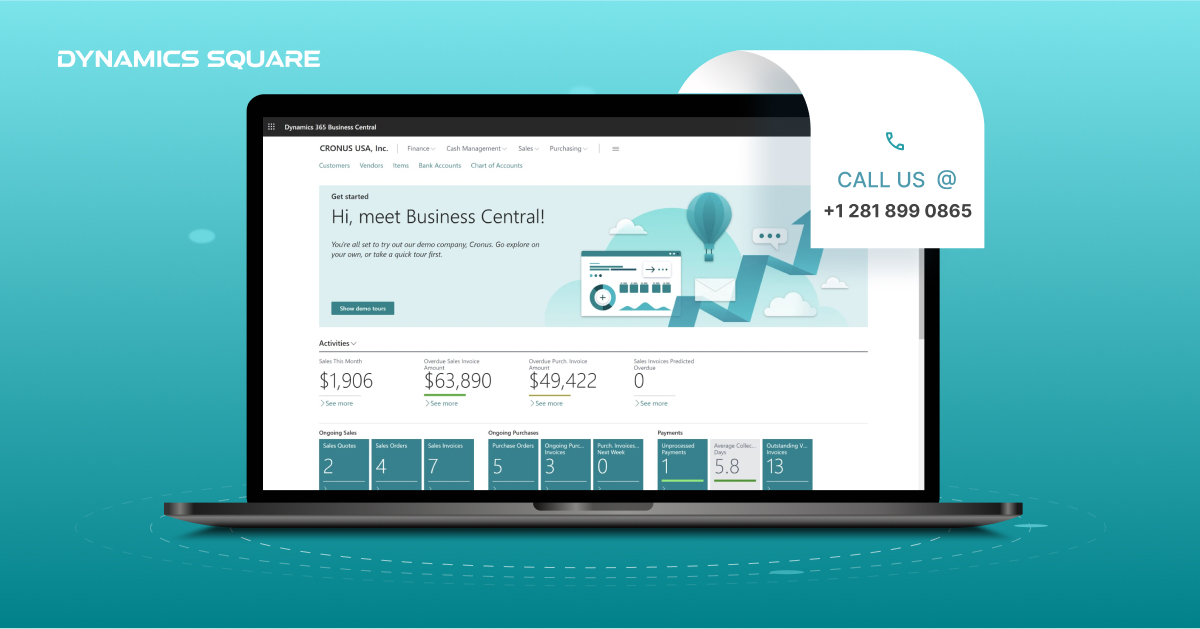
Choosing the Right Financial Companion: Business Central vs. QuickBooks
Selecting the right financial management software is a pivotal decision for any business. In the ever-evolving landscape of technology, two names that stand out prominently are Microsoft Dynamics 365 Business Central and QuickBooks.
Both have their merits, but which one is the best fit for your business? In this blog, we will dissect these two solutions, examining their features, capabilities, and suitability for different types of businesses.
User-Friendly Interface
When it comes to user-friendliness, QuickBooks has long been a favorite among small businesses. Its simple and intuitive interface allows even those without an accounting background to manage their finances efficiently. On the other hand, Microsoft Dynamics Business Central, while more robust in features, may require a steeper learning curve. However, this discrepancy is often justified by the extensive capabilities it offers.
Scalability
Business Central, as part of the Microsoft Dynamics 365 suite, is renowned for its scalability. It can grow alongside your business, making it an ideal choice for companies with ambitious expansion plans. On the contrary, QuickBooks, while great for small businesses, might outgrow its usefulness when your operations become more complex.
Financial Capabilities
QuickBooks is primarily designed for financial management, making it exceptionally proficient in this aspect. It excels in tasks like bookkeeping, invoicing, and expense tracking. Business Central, on the other hand, is a comprehensive ERP (Enterprise Resource Planning) system that not only handles finances but also integrates seamlessly with other business processes like inventory management, customer relationship management (CRM), and supply chain management. If you’re looking for a holistic solution, Business Central has the edge.
Integration
Integration is a critical factor in today’s business landscape. Business Central, being part of the Dynamics 365 ecosystem, effortlessly integrates with other Microsoft applications such as Microsoft 365, Power BI, and Azure. This makes it an attractive choice for businesses already invested in the Microsoft ecosystem. QuickBooks, while it does offer some integration options, may not be as seamless in this regard.
Customization
Every business is unique, and their software should reflect that. Business Central allows for extensive customization to adapt to your specific needs. You can add industry-specific extensions and tailor the system to match your workflows. QuickBooks, while it has some customization options, doesn’t offer the same level of flexibility.
Cost Considerations
QuickBooks often comes with a lower upfront cost, making it an attractive option for small businesses with tight budgets. However, as your business grows, you might need to invest in more features or even switch to a more comprehensive solution, which can incur additional costs. Business Central’s pricing can be higher initially, but it may prove more cost-effective in the long run, especially for businesses with scalability in mind.
Support and Training
QuickBooks has an extensive user community, and finding help or training resources is relatively easy. Business Central benefits from Microsoft’s comprehensive support network, which includes access to a network of Dynamics 365 partners. If you value having access to a Dynamics 365 partner for implementation and ongoing support, Business Central might be the better choice.
Dynamics 365 Partner – Your Implementation Ally
When implementing an ERP system like Business Central, having a Microsoft Dynamics partner by your side can make all the difference. These experts understand the intricacies of the software and can tailor it to your business’s unique needs. Their guidance ensures a smoother transition and maximizes the software’s potential. If you opt for QuickBooks, you might not need such extensive dynamics 365 implementation support.
Choosing the Right Solution for Your Business
In conclusion, the choice between Microsoft Dynamics 365 Business Central and QuickBooks depends on your business’s size, complexity, and long-term goals. QuickBooks is an excellent choice for small businesses looking for straightforward financial management. In contrast, Business Central offers a comprehensive solution for growing businesses with diverse needs.
Before making a decision, evaluate your current and future requirements, consider your budget, and factor in the support you’ll need. If you’re already entrenched in the Microsoft ecosystem or have ambitious expansion plans, Business Central, with the help of a Dynamics 365 partner, could be your ideal financial companion. However, if you’re a small business looking for a quick and cost-effective solution, QuickBooks may be the better choice.
Remember, the right financial management software can be a powerful ally in achieving your business goals, so choose wisely.



